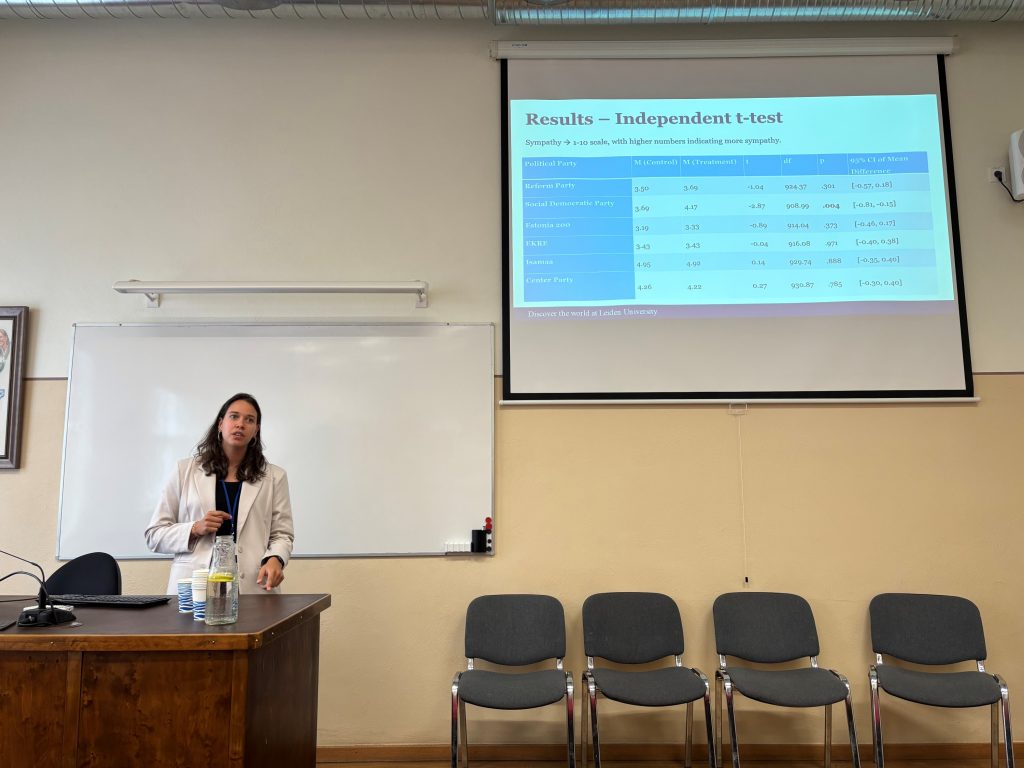The main focus of this week’s fieldwork was the Tartu Conference on East European and Eurasian Studies. When I originally planned my stay in Estonia, I made sure to time it around this conference, and it did not disappoint.

Before the start of the conference on Wednesday, I wrapped up my series of expert interviews. Altogether, talking to these different experts has been incredibly valuable in deepening my understanding of Estonia and has given me many useful insights for writing the remaining papers of my PhD. To list a couple of insights that I gained:
- Overall, trust in media in Estonia is very high, but there is a notable difference between the trust of Estonian-speakers compared to Russian-speakers.
- Trust of this latter, Russian-speaking group is much lower, and not only in Estonian news media, but also in international media, Russia’s media, and even news that is being shared via family and friends.
- This divide between Estonian-speakers and Russian-speakers plays a central role in understanding Estonian media, politics, and the relationship between the two.
- Yet, contrary to what you might expect, this Russian-speaking group is far from homogeneous. It includes people of (amongst others) Russian, Belarusian, and Ukrainian backgrounds, and their media diet varies widely. Some have a mixed diet, including news in Estonian and international news. Others rely mainly on Russian-language content provided by Estonian outlets like Delfi, Postimees, and ETV+. Another group tries to stay away from following the news altogether or only focuses on local, more culturally focused events. Finally, only a small portion of Russian-speakers can be considered part of Russia’s state information bubble.
- Still, Russia’s influence is felt even beyond this bubble, with certain narratives being echoed by citizens, but also by politicians. One example is the Estonian citizen Sergei Seredenko, who published stories as if there was mass discrimination against the Russian-speaking population in Estonia at the national level and spread stories of Russophobia and fascism in Estonia.

At the Tartu Conference, I had the chance to meet many scholars working on similar topics in the Eastern European and Eurasian region. I also presented the preliminary findings from my survey-experiment. The feedback was very positive, which was encouraging, but since the results are still early, I’ll save a more detailed discussion for a future blog. For now, it’s time to start packing again as I’ll travel to Narva to continue interviewing citizens tomorrow.